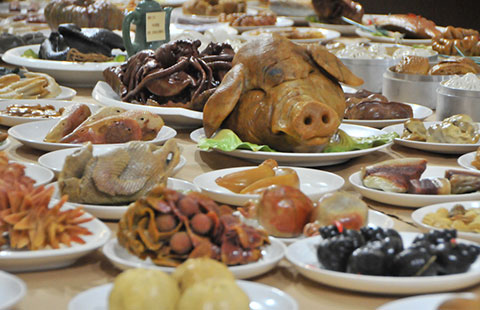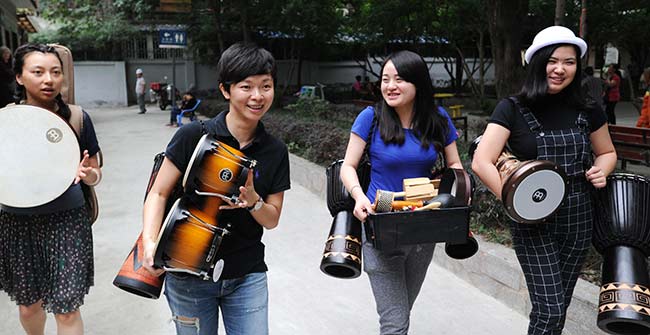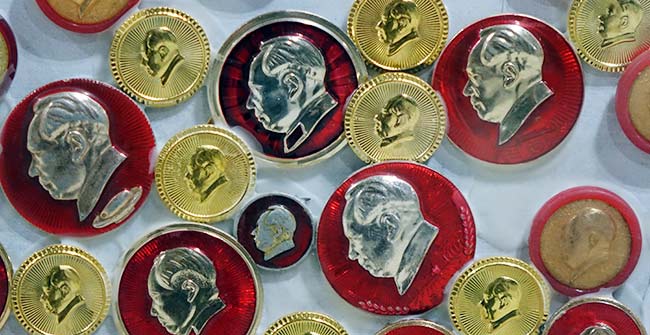Investigators find tourist price gouging in Yunnan
By Su Zhou (China Daily) Updated: 2015-10-08 07:47Travel agencies forced visitors to buy goods at designated places during holiday, authorities say
Yunnan province received more tourists but also more complaints during this year's Golden Week - the National Day holiday that lasts seven days, according to undercover investigations conducted by authorities that also showed travel agencies and shops made illegitimate profits by forcing tourists to buy overpriced souvenirs.
According to a senior tourism official, travel agencies could rake in as much as 70 percent of the generated profits.
Yunnan, which boasts five World Cultural Heritage sites, has long been popular among tourists. From Oct 1 to 5, destinations that include Kunming, Yuxi, Honghe and Dali saw more than 200,000 tourists.
The Yunnan tourism market inspections were conducted during the weeklong National Day holiday by five authorities, including the China National Tourism Administration, the Ministry of Public Security and the Ministry of Commerce. It's the first time an inspection team was sent to a single tourism destination.
Peng Zhikai, the leader of the inspection team as well as a senior official from China's tourism watchdog, said problems that included forcing tourists to shop are still very serious in Yunnan, mainly as a result of the low fees charged by local travel agencies.
"The five-day tour to Yunnan provided by some travel agencies is only 1,300 yuan. This wouldn't cover the airline cost, which is estimated as 1,900 yuan," said Peng, adding that those low-charged travel agencies have taken tourists from the well-behaved ones.
Peng said many tourists would buy jade and silver souvenirs during the trip because those are famous in Yunnan, and this left loopholes.
"Many shops gave kickbacks to travel agencies if they could bring customers. This percentage could be as high as 70. This is a huge temptation for travel agencies," added Peng.
And the illegal profits were paid by tourists. Peng added that many shops raised prices of goods to take advantage of tourists.
Zhang Zejun, mayor of Lijiang, said the lack of standards of unreasonably cheap trips and forced-shopping had made it a difficult problem to deal with.
To curb forced shopping, the inspection team has suggested Yunnan province adopt a digital invoice system in shopping areas.
"More invoices means more taxes for shops," said Peng. "It also helps the government to monitor the consumption."
suzhou@chinadaily.com.cn
- Meeting on Taiwan affairs seen as a boost to relations
- Fujian governor investigated
- Tsinghua ranked world's best in engineering
- Smog dampens travelers' holiday spirit
- Police crack down on driving along shoulder
- Typhoon leaves trail of death and mayhem
- Transport delays reduce the time windows for organ transplants
- Ex-HK chief executive in court on misconduct charges
- Xi's initiatives at UN 'generous opportunity' for developing countries
- Excavation of famed Chinese warship underway







